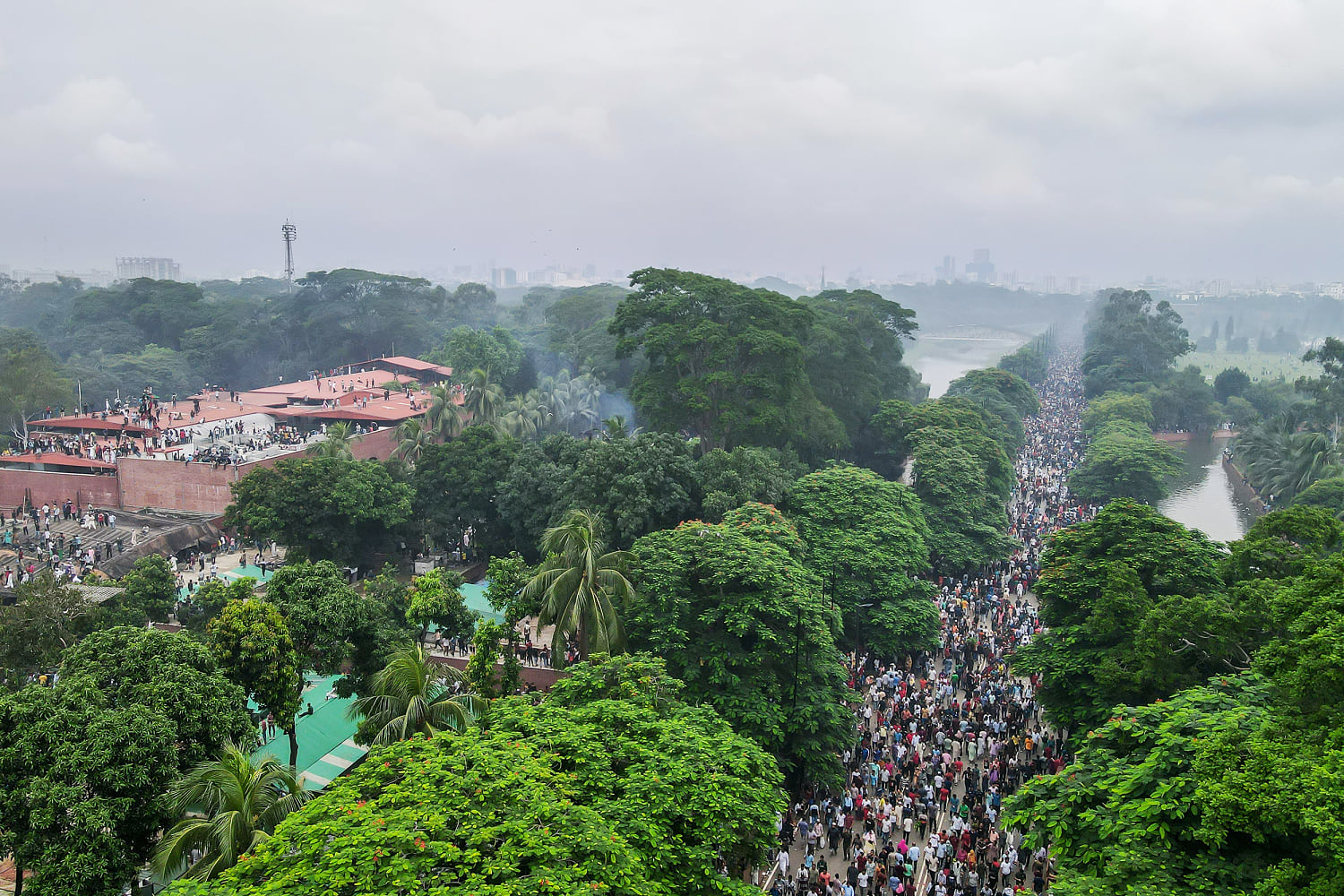
On Tuesday, the streets of Dhaka were littered with debris, burned-out cars and remnants of makeshift barricades, while the smell of burning lingered in the air. Civilian volunteers took it upon themselves to direct traffic in the city of 23 million until the police returned.
Abdullah Noman, a university student who took part in the protests, said he “couldn’t just stand by and watch everything fall apart.”
“People need to get to work, to hospitals, and there’s no one else to help. If we don’t step up, who will?” he said as he stood at the bustling intersection of Bijoy Sarani. “The city is in chaos, and we have to do what we can to keep things moving.”
Army chief Gen. Waker-Uz-Zaman, who announced Hasina’s resignation on Monday, was set to meet Tuesday with student protest leaders who demanded that parliament be dissolved by 3 p.m. (5 a.m. ET), urging “revolutionary students to be ready” if the deadline was not met.
“Any government other than the one we recommended would not be accepted,” Nahid Islam, 26, one of the key organizers of the student movement, said in a video on Facebook.
Islam said the students had shared their plans with Yunus and that “he has agreed to take on this responsibility at our invitation.”
Yunus, who supported the protests and told Indian media that Monday was Bangladesh’s “second liberation day,” did not respond to an NBC News request for comment from his Dhaka-based Yunus Centre.
Yunus would be more of a “figurehead,” said Chietigj Bajpaee, a senior research fellow for South Asia at the London-based Chatham House, and his leadership would give “some amount of credibility to the interim government.”
Regardless, he said, officials in Washington will be closely monitoring the situation in Bangladesh, which is considered “a beneficiary of the push to diversify away from China.”
“There are underlying geopolitical concerns that future Bangladesh doesn’t become more beholden to Beijing,” he said.
The crisis could also have implications for neighboring India, which is seen as having long supported Hasina and where she fled on Monday.
Yunus told Indian news channel Times Now that people in Bangladesh were “angry at India because you are supporting the person who destroyed our lives.”

إرسال تعليق